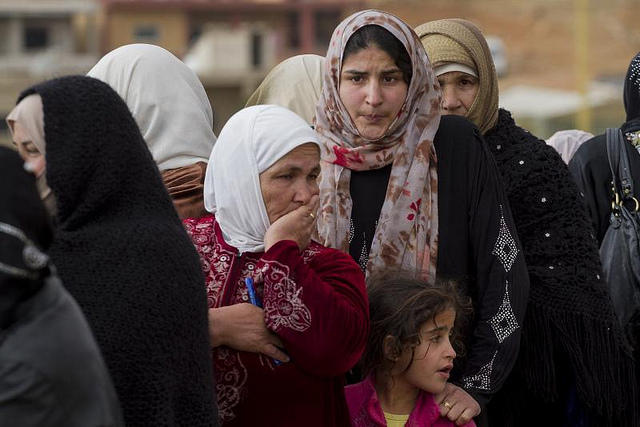
The Global Compact on Refugees: A Long Way to Go in Breaking the Status Quo
One definition of a compact is an agreement among states or between nations on matters in which they have common concern. As the last few years have borne out—with refugee numbers reaching 22.5 million globally—responding to refugee needs and the communities and countries that host them is truly a matter of common concern. With host countries straining to support refugees for years on end and the filing of over 1.3 million asylum claims in Europe in 2015 alone, the case for a better arrangement—or compact—between nations to adequately respond to refugee needs and buttress the efforts of those on the front lines responding to them is undeniable. Put simply, the status quo is not working.
This stark reality was the driving force behind the adoption of the New York Declaration for Refugees and Migrants in September 2016. The Declaration committed all 193 Member States of the United Nations to “a more equitable sharing of the burden and responsibility for hosting and supporting the world’s refugees.” While the Declaration did not specify the mechanisms of how that responsibility would be shared, it called for the development of a “Global Refugee Compact” within two years to detail practical steps to “ease pressures on the (refugee) host countries involved, enhance refugee self-reliance, expand access to third country solutions and support conditions in countries of origin for return in safety and dignity.”
The widely anticipated “zero” draft of the Global Compact on Refugees was released on January 31st of this year. While there are some bright spots in the draft in terms of describing what greater support to refugees and host countries could entail, it falls painfully short on specifics, with no clear blueprint presented on how responsibility sharing for refugees will be achieved. Even more concerning, the draft poses all measures as things that “could” be done by “interested” states, essentially presenting an a la carte menu for Member States to choose from according to their own desires. This combination of scant detail and a “cherry picking” approach will do little to break the status quo.
InterAction’s Refugee Policy Working Group put together a reaction piece to the “zero” draft, analyzing the strengths and weaknesses. The recommendations center on the following points:
- Mutual Approaches: Host states should improve the protection space for refugees in the form of increased access to basic services like health and education and by guaranteeing their right to freely move and work. All other states should provide support in the form of resources (financial and technical) and a commitment to resettle refugees to their home countries. This can be crystalized in the form of national or regional compacts in which hosting states and other nations put together a joint plan and agree to their specific roles in fulfilling it. Such agreements would make their responsibility in each refugee situation clear to both parties, along with what they will receive in return for delivering on their commitments.
- Monitor and Measure: Responsibility sharing is only rhetoric unless actions are taken to live up to the term. Emphasis should be placed on monitoring and measuring commitments in the Global Compact on Refugees to ensure follow through. The data reported against commitments should be made public to determine where efforts are falling short.
- Protection as the Primary Metric: The ultimate metric of success of the Global Compact on Refugees should be whether refugees are protected during their displacement. Language should be strengthened in the draft to ensure refugees’ right to not be prematurely returned to their country of origin, avoid detention, and live a life in dignity during their displacement. Currently, the draft does not put protection first in its drive toward improved responsibility sharing arrangements between states.
Ultimately, the “zero” draft is just that, the first of several iterations of what will ultimately become the Global Compact on Refugees.
InterAction encourages further discussion with Member States and civil society groups to further strengthen the draft. The final version must deliver on the groundbreaking spirit of responsibility sharing enshrined in the New York Declaration.








